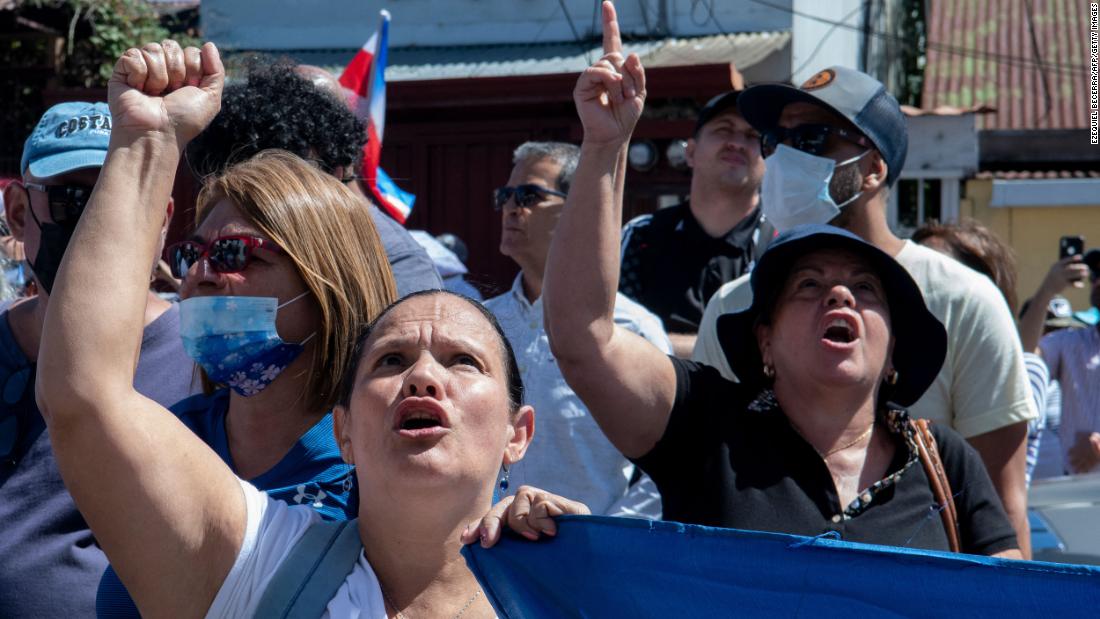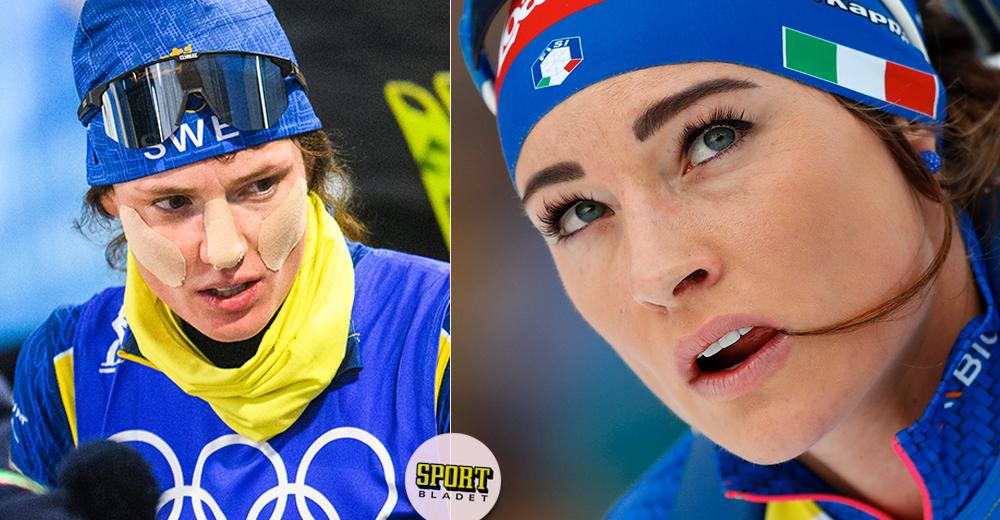(CNN) — It all started as a heated argument between a father and his son’s doctor. But it quickly turned into a multi-person fist fight that shocked the country. Inside the San Vicente de Paúl Hospital, in the Costa Rican province of Heredia, not far from the capital, San José, the discussion — about the country’s covid-19 vaccine mandate — came to blows last week. passed, which led to the arrest of seven people.
But this fight had more consequences than just for the people involved: the incident forced the authorities to temporarily close the doors of the hospital, marking a dark moment in the country’s fight against the pandemic and highlighting the debate around its vaccination policy. mandatory.
Last November, Costa Rica became the first country in the world to oblige minors to be vaccinated against the covid-19 virus. All children over 5 years of age are required to be vaccinated, except for medical exceptions.
More than 91% of people between the ages of 12 and 19 have received at least one dose of the covid-19 vaccine, according to the latest government data, but vaccination of younger children has stagnated: just 12% so far of children aged 5 to 11 years have received a dose.
A survey published by the Pan American Health Organization In October, it revealed that almost 94% of the Costa Rican population considers “it is important that all people be vaccinated against covid-19.” In the same survey, 89% of parents said they would vaccinate their children 12 years of age or younger.
And many seem to agree with the mandate.
A study conducted by the School of Statistics of the University of Costa Rica found that 75% of respondents said they supported the vaccination mandate for people 18 years of age or older, and that support decreased with age groups; 69% of people agreed with the vaccination mandate for children aged 12 to 17 years, while 59% supported the measure for children aged 5 to 12 years.
However, a small but vocal group of parents — like those who surrounded the hospital last week — oppose the measure, propelling the debate over mandatory vaccinations into Congress.
The attack in Heredia came after a six-year-old boy was admitted to the hospital with a respiratory problem, according to hospital director Priscila Balmaceda Chaves. When the doctor who treated him found out that the child had not been vaccinated, he told the child’s father that he should do so. According to the mandate, a child can be vaccinated even if their parents do not give their consent, but that process is not instantaneous, according to public health expert Román Macaya Hayes, who heads the Costa Rican Social Security Institute.
Angry that his son might be vaccinated without his permission, the father, along with six other people, went downstairs to stop him, according to authorities. That’s when the fist fight broke out.
The president of Congress, Silvia Hernández Sánchez, described the group as a “mob enraged by senselessness”, whose violent actions “put both staff and patients at risk”, and the Costa Rican Minister of Public Security asked the courts that “apply the full severity of the law”.
Hayes told CNN that protecting a child’s health is equivalent to preventing child abuse, since the result is the same: ensuring the well-being of minors.
He explained that compulsory vaccination is supported by legislation, including laws that support the “constitutional right to life and therefore to health.”
“The collective good is above the rights of the individual,” Hayes said.
Not all legislators agree, although they also seem to be in the minority.
One of those who most opposes it is the independent legislator Erick Rodríguez Steller, who described the mandate as “nonsense”, saying that it leaves Costa Rica under a “health dictatorship”.
Although Rodríguez says that he does not condone the violence that took place in the Heredia hospital, he affirmed that the father had every right to prevent his son from being vaccinated.
Rodriguez voiced his opposition to the mandate in Congress last week, saying “the state shouldn’t be in the business of deciding how we raise our children.”
He later told CNN that he has been vaccinated, that he believes in science and that he is not “anti-vaccine”, even though local media outlets claim that the father of the child at the center of the controversy is.
Rodriguez said he believes there hasn’t been enough information about the risks of vaccines to children, and that he and others who oppose the mandate just want to find out the “truth” about any potential risks.
Studies conducted around the world concluded that covid-19 vaccines are safe for children, and the United States Centers for Disease Control and Prevention (CDC) recommend them from of the 5 years.
And in Latin America, Cuba, Chile and Argentina have been carrying out successful childhood vaccination campaigns for months.
However, governments around the world have largely eschewed mandatory vaccination and opted instead for incentives to motivate people to get vaccinated.
Even in authoritarian states like China, where vaccines are approved for children as young as 3, they are not required. However, this trend could change in Europe. This Friday, Austria became the first European nation to impose a vaccination mandate on its adult population.
Some say the mandates are testing the line between public health and civil liberties, raising tensions between those who get vaccinated and those who don’t.
Rodríguez, the independent legislator, said that he does not completely rule out supporting a mandate, but that it must have the consensus of Congress.
“When it comes to restricting rights and freedoms, you have to go through the Legislative Assembly, and here the health authorities have ignored us,” he said.
Hayes insists that the mandate is not to restrict freedoms, but to guarantee the public good, especially when there is a vaccine that has been shown to be safe and effective throughout the world.
“Let’s keep alive the Costa Rican tradition of believing in vaccines, of believing in science and of believing in doctors who treat patients with their interests in mind, because these vaccines save lives,” he said.
Djenane Villanueva in San José, Costa Rica, contributed to this report.
–


